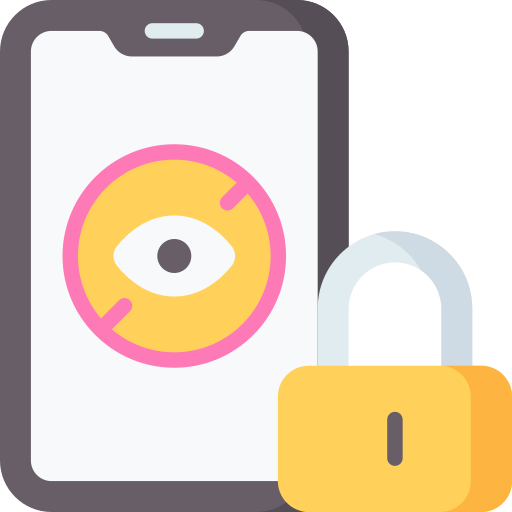Understanding the Impact: Exploring the Consequences of Internet Dependency
The proliferation of the internet has undoubtedly revolutionized the way we live and interact with the world. However, along with its numerous advantages, there are also various consequences that come with excessive internet dependency. One significant impact is social isolation. Spending excessive amounts of time online can lead to a sense of loneliness and disconnection from real-life interactions. This can be attributed to the fact that individuals may prioritize virtual connections over face-to-face relationships, ultimately resulting in reduced social interaction and a decrease in overall well-being.
Moreover, mental health concerns are another consequence associated with internet dependency. Research has shown a clear correlation between excessive internet use and anxiety. The constant exposure to information and the pressure to maintain online images can lead to feelings of overwhelm and stress. Furthermore, the easy access to social media platforms can often lead to comparison and self-esteem issues, further exacerbating anxiety levels. It is important to recognize the potential negative impact that internet dependency can have on mental health and take proactive steps to manage and reduce it.
Social Isolation: How Excessive Internet Use Can Lead to Loneliness
Excessive internet use has become a common phenomenon in today’s society, and while it may provide a sense of connectivity, it can ironically lead to social isolation and loneliness. With the ease of accessing social media platforms, online gaming, and virtual communities, individuals may find themselves spending more time interacting with their screens than engaging in face-to-face interactions. This dependence on virtual connections can gradually erode real-life relationships, leading to a growing sense of isolation and loneliness.
In a world where digital communication has become the norm, the potential for social isolation due to excessive internet use is a concerning reality. As people become engrossed in their online activities, they may inadvertently neglect their social lives, missing out on fulfilling interpersonal interactions. The superficial nature of online interactions can further exacerbate feelings of loneliness, as individuals may crave deeper emotional connections that cannot be fully achieved through a screen. Consequently, excessive internet use has the potential to isolate individuals, leaving them feeling disconnected from the real world and longing for genuine human connection.
Mental Health Concerns: The Relationship Between Internet Dependency and Anxiety
The increasing prevalence of internet dependency has sparked concerns about its potential impact on mental health, particularly anxiety. Research suggests a significant relationship between excessive internet use and increased feelings of anxiety. Constant exposure to social media, online gaming, and virtual interactions can create a sense of pressure to conform, compare oneself to others, and seek validation. Such tendencies can exacerbate insecurities and contribute to feelings of anxiety and self-doubt. Moreover, the constant bombardment of information and the fear of missing out (FOMO) can trigger a sense of restlessness and unease, further fueling anxiety symptoms. This association between internet dependency and anxiety highlights the need to address and manage excessive internet use to protect individuals’ mental health.
Individuals who continuously engage in excessive internet use also tend to develop maladaptive coping mechanisms, contributing to anxiety. For some, the internet serves as an escape from real-world problems and discomfort. While temporarily soothing, this reliance on the internet as a coping mechanism can perpetuate anxiety in the long run. Moreover, the lack of face-to-face interactions and genuine human connections that the internet can foster may lead to feelings of isolation and loneliness, both of which are known triggers for anxiety. Therefore, it is essential to recognize the potential mental health concerns associated with internet dependency and implement strategies to promote a healthier balance between online and offline activities.
Impaired Relationships: How Internet Dependency Can Affect Interpersonal Connections
In today’s digital age, with the increasing prevalence of internet usage, individuals are finding themselves more and more dependent on online platforms for social interaction. While this may seem convenient and efficient, it can have detrimental effects on our interpersonal connections. Excessive internet use can lead to a sense of disconnection from the real world, causing individuals to prioritize virtual relationships over face-to-face interactions. As a result, meaningful connections can become strained or even lost, leading to impaired relationships and feelings of loneliness.
One of the main ways in which internet dependency affects our interpersonal connections is through the lack of genuine communication and emotional connection. The convenience of online messaging and social media platforms has replaced the value of in-person conversations and quality time spent with loved ones. Instead of engaging in meaningful discussions, individuals may find themselves constantly checking their phones or scrolling through their social media feeds, which can lead to feelings of neglect and disinterest from those around them. This lack of emotional depth and connection can severely impact the quality of relationships, making them feel shallow and superficial.
Academic Performance: The Negative Effects of Internet Dependency on Students’ Learning
As the prevalence of internet usage continues to increase, so do its negative effects on students’ academic performance. One significant consequence of internet dependency is the potential decrease in students’ ability to concentrate and focus on their studies. With the constant lure of social media notifications, online gaming, and endless sources of entertainment, students often find it challenging to stay engaged in their schoolwork. As a result, their attention spans may shorten, making it difficult for them to grasp complex concepts and retain information.
Moreover, excessive internet use can also lead to a decrease in students’ motivation and productivity. With the vast amount of information available online, students may become overwhelmed and distracted, causing them to procrastinate or lose interest in their studies. Additionally, spending excessive time on the internet can lead to a lack of proper time management skills, further impacting their ability to complete assignments and study effectively. Consequently, their academic achievements may suffer, with lower grades and decreased overall performance becoming more prevalent.
Physical Well-being: Exploring the Health Risks Associated with Excessive Internet Use
Excessive internet use has been linked to a number of health risks, particularly in relation to physical well-being. One notable concern is the sedentary nature of internet activities, which often involve prolonged periods of sitting or lying down. This lack of physical activity can lead to weight gain, decreased muscle mass, and an increased risk of developing chronic conditions such as heart disease, diabetes, and obesity. Additionally, excessive internet use has been associated with poor posture and musculoskeletal issues, as individuals hunch over their devices for extended periods, leading to discomfort, pain, and potentially long-term problems.
Moreover, excessive internet use can disrupt sleep patterns, further impacting physical well-being. The use of electronic devices, such as smartphones and tablets, before bedtime can interfere with the body’s natural sleep-wake cycle. The blue light emitted by screens can suppress the production of melatonin, a hormone that regulates sleep. This can result in difficulty falling asleep and achieving restful sleep, leading to daytime fatigue, difficulty concentrating, and a weakened immune system. Consequently, individuals who spend excessive time on the internet may experience a decline in overall physical health due to compromised sleep quality.
Productivity Decrease: How Internet Dependency Can Hinder Efficiency and Focus
The growing reliance on the internet has had a significant impact on productivity in various aspects of life. Whether it is in the workplace, in educational settings, or even in personal tasks, excessive internet use can hinder efficiency and affect one’s ability to focus. The constant availability of distractions, such as social media, online shopping, and endless browsing, can easily divert attention from important tasks and reduce overall productivity.
One of the key factors contributing to decreased productivity is the phenomenon of multitasking. With the internet at our fingertips, it has become all too common to engage in multiple tasks simultaneously. However, research has shown that multitasking actually lowers efficiency and slows down the completion of tasks. Constantly switching between different activities and trying to keep up with the influx of information can lead to mental fatigue and reduced concentration, ultimately hampering overall productivity. Moreover, the ease of access to entertainment and non-work-related content online can tempt individuals to engage in distractions rather than focusing on their responsibilities, further impeding their ability to accomplish tasks efficiently.
Cyberbullying and Online Harassment: The Dark Side of Internet Dependency
The rise of internet dependency has undoubtedly brought about numerous benefits and advancements in various aspects of our lives. However, it also comes with a dark side that cannot be ignored: cyberbullying and online harassment. With the anonymity and ease of communication that the internet provides, individuals who engage in such harmful behavior can target their victims without fear of consequences.
One of the most alarming aspects of cyberbullying and online harassment is the detrimental impact it can have on the mental well-being of its victims. Constant exposure to derogatory comments, threats, and ridicule can lead to feelings of anxiety, depression, and low self-esteem. This, in turn, can have severe consequences on their overall quality of life and ability to function in day-to-day activities. Additionally, the harassment can follow them beyond the virtual world, infiltrating their personal lives and relationships. The effects of cyberbullying and online harassment are not only profound but also long-lasting, making it essential to address this issue and find ways to protect vulnerable individuals from the dark side of internet dependency.
Sleep Disruptions: Understanding the Relationship Between Internet Use and Insomnia
When it comes to sleep disruptions, excessive internet use has emerged as a significant contributor, particularly in today’s technology-driven society. The relationship between internet use and insomnia has been a subject of study as researchers delve into understanding the impact of digital screens on our sleep patterns. Numerous studies have found a link between increased internet usage and sleep disturbances, often leading to difficulties falling asleep, staying asleep, and achieving restorative sleep.
One of the key reasons behind sleep disruptions caused by internet use is the exposure to blue light emitted by electronic devices. The blue light suppresses the production of melatonin, a hormone that regulates our sleep-wake cycle, making it harder for individuals to unwind before bedtime. Moreover, the stimulating content available on the internet, such as engaging social media feeds, online gaming, or binge-watching shows, can keep individuals engaged and mentally stimulated, making it difficult to switch off and relax, further contributing to sleep disturbances.
Developing Healthy Internet Habits: Strategies to Overcome Internet Dependency and Promote Well-being.
In today’s fast-paced digital age, it is becoming increasingly important to develop healthy internet habits to overcome internet dependency and promote overall well-being. One effective strategy is setting clear boundaries and time limits for internet use. By establishing designated times for online activities and consciously stepping away from screens when those times are up, individuals can regain control over their internet usage and ensure a healthier balance between their virtual and real lives.
Another helpful strategy is to practice mindfulness and be present in the moment. Many times, excessive internet use stems from a constant need for stimulation and distraction. By adopting mindful practices such as meditation or engaging in offline activities that promote relaxation and self-reflection, individuals can cultivate a sense of awareness and reduce the urge to constantly be connected. Prioritizing quality offline interactions and activities can greatly contribute to a healthier relationship with the internet and ultimately improve overall well-being.
What is internet dependency?
Internet dependency refers to excessive and compulsive use of the internet, leading to negative consequences on various aspects of an individual’s life.
What are the consequences of internet dependency?
Internet dependency can lead to social isolation, mental health concerns such as anxiety, impaired relationships, academic performance decline, physical health risks, decreased productivity, cyberbullying and online harassment, and sleep disruptions.
How does excessive internet use contribute to social isolation?
Excessive internet use can lead to social isolation by replacing real-life social interactions with virtual ones, reducing face-to-face communication and meaningful connections with others.
What is the relationship between internet dependency and anxiety?
Internet dependency can contribute to anxiety by creating feelings of fear, restlessness, and worry when not connected to the internet or when facing difficulties in maintaining online activities.
How does internet dependency affect interpersonal connections?
Internet dependency can impair interpersonal connections by diverting attention away from in-person relationships and reducing the quality of communication, leading to strained relationships and misunderstandings.
In what ways does internet dependency negatively impact students’ learning?
Internet dependency can negatively affect students’ learning by causing distractions, reducing focus and concentration, increasing procrastination, and hindering academic performance.
What are the health risks associated with excessive internet use?
Excessive internet use can lead to physical health risks such as sedentary behavior, poor posture, eye strain, sleep disturbances, and an increased risk of obesity and related health conditions.
How does internet dependency hinder efficiency and focus?
Internet dependency can decrease productivity by causing constant interruptions, multitasking, and loss of concentration, making it difficult to complete tasks efficiently and maintain focus.
What are the dark sides of internet dependency, specifically concerning cyberbullying and online harassment?
Internet dependency can expose individuals to cyberbullying and online harassment, where they may become victims of abusive behavior, threats, and humiliation by others through various online platforms.
How does internet use relate to insomnia and sleep disruptions?
Excessive internet use, particularly close to bedtime, can disrupt sleep patterns by affecting the natural sleep-wake cycle, causing difficulty falling asleep, and reducing sleep quality.
What strategies can be implemented to overcome internet dependency and promote well-being?
Strategies to develop healthy internet habits include setting boundaries, managing time spent online, seeking support from family and friends, engaging in offline activities, practicing self-care, and seeking professional help if necessary.




